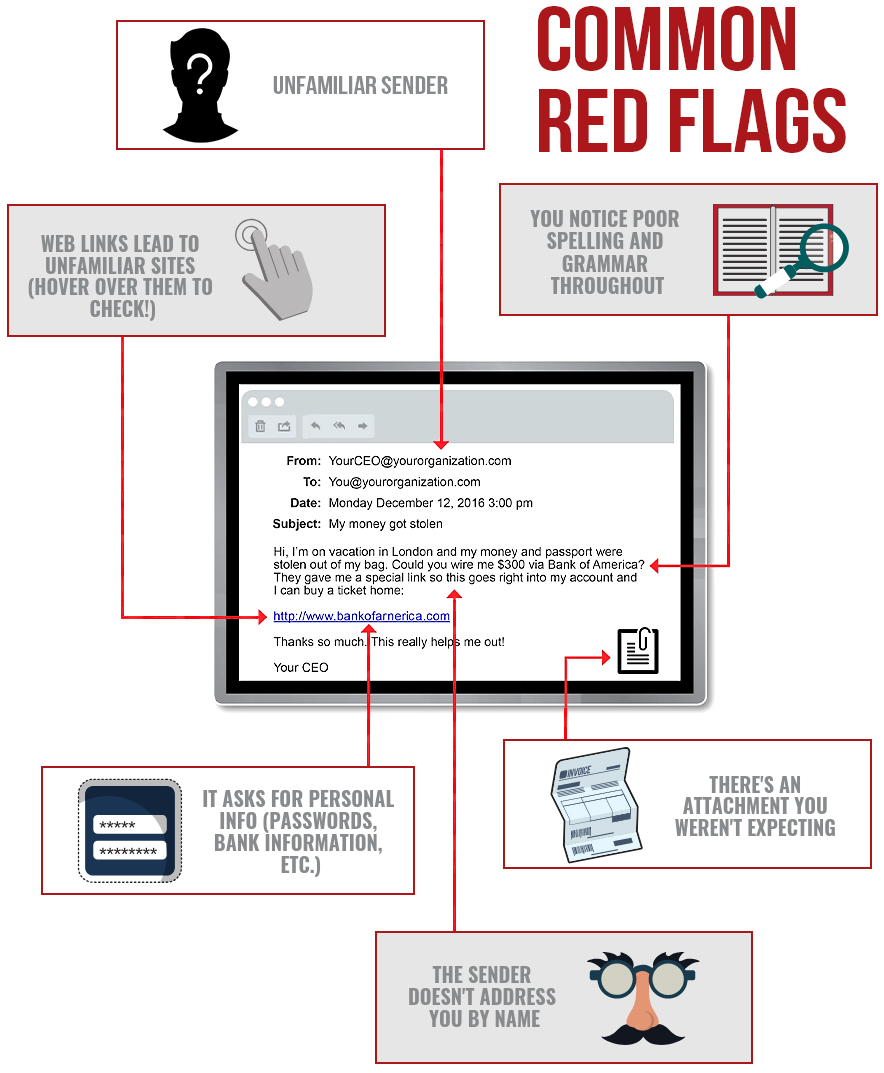Information Security Frequently Asked Questions
Information security is of paramount importance, but security depends on everyone knowing what to do. Use the following questions and answers to learn more about information security at FAU. If you don't see your question or would like some clarification, contact us at security-training@fau.edu.
Internet Safety Tips
- Do not put personal information on social Web sites.
- Do not click on suspicious links or tiny URLs in Facebook, Twitter, etc.
- Think before you click on ANY suspicious links or attachments.
- Look for https:// sites to conduct banking or online shopping.
- Make sure your operating system and Internet browsers have the latest security updates installed.
General Access Questions
Red Flags Rule
E-mail Phishing & Security Awareness
Phishing is the act of disguising as a trustworthy entity (such as an administrative figure from a school, financial institution, etc.) to gather information that could be used to compromise one's identity, school credentials, and/or banking information. One of the most common practices of phishing is found through e-mail.
You may receive e-mails from FAU and other credible institutions on a daily basis, but you should always question every e-mail's legitimacy before clicking on any links or attachments. It is best practice to delete an unsolicited e-mail if you are unsure of its validity.

If the e-mail is especially concerning and you need to know if it is an attempted phishing attempt, you can forward the e-mail in question to our department at security@fau.edu and we will assist you in making this decision. In the event that you accidentally click on any links or attachments in a phishing e-mail, it is best to, at the very least, change your FAU password (as well as any other sensitive accounts that use this same password).
- Keep your antivirus and operating system up to date.
- Contact us at security@fau.edu if you receive a phishing e-mail. If you are not sure if something is legitimate, forward it to us and we will assist.
- Set a strong password (upper case letters, lower case letters, numbers, and/or special characters make a password stronger).
- Always do your best to protect your identity and all Personal Identifiable Information (PII).
- Use anti-virus software to protect your computer from viruses and other harmful programs (known as malware).
- Use pop-up blockers in your Web browser to help protect yourself from spyware (be sure to allow pop-ups from FAU Web pages since MyFAU and Canvas use them).
- Safe spyware software that you may want to use at no charge are:
Did you know that internet usage on mobile devices has surpassed the amount of usage on desktops? It's true, and now is more important than ever to take precautions against threats on our mobile phones and tablets. Here are a few things you can do to better protect yourself while using your portable devices:
- Set up a passcode/password on the device (touch authentication and/or two-factor should be set up as an added layer of security)
- Make sure you keep up with software updates within your settings and keep up with application updates within your app store.
- Not all apps in the Apple App store/Google Play Store are safe. Check reviews and do your research to verify the legitimacy of an application.
- Delete applications that you no longer use; old applications could provide a backdoor to your device.
- Do not access sensitive information such as banking details and emails on public WiFi hotspots.
- Disable WiFi, Bluetooth, and location services when not in use.